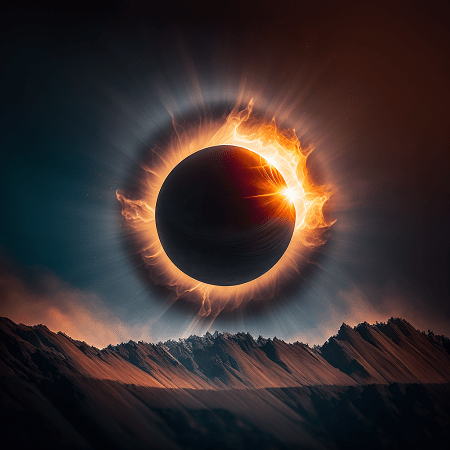As the world eagerly anticipates the next solar eclipse, it’s important to remember that viewing a solar eclipse can be dangerous if proper precautions are not taken. In this article, we’ll discuss the top 10 tips for safely viewing a solar eclipse, as recommended by experts at the National Safety Council (NSC), NASA, and the American Astronomical Society (AAS).
- Never look directly at the sun, even during a solar eclipse. The sun’s rays can cause serious damage to your eyes, including blindness. Always use proper eye protection, such as eclipse glasses or a solar viewer, when viewing a solar eclipse.
- Understand the different phases of a solar eclipse. A total solar eclipse, when the moon completely covers the sun, is the only time it is safe to view the eclipse without protection. During a partial eclipse, when the moon only partially covers the sun, it is never safe to view the eclipse without proper eye protection.
- Make sure your eclipse glasses or solar viewer are certified and meet the ISO 12312-2 international standard. Not all protective eyewear is created equal and some counterfeit glasses may not offer adequate protection.
- Be aware of your surroundings during the eclipse. If you are in a location where the eclipse will be total, do not drive or operate heavy machinery as the sudden darkness may cause confusion and accidents.
- Keep children under close supervision during the eclipse. Children may not understand the dangers of looking directly at the sun and may need extra guidance and protection.
- Do not use homemade filters or ordinary sunglasses, even very dark ones, as they will not protect your eyes from the sun’s harmful rays.
- Do not look at the eclipse through a camera, telescope, binoculars, or other optical device without proper filtering. These devices will focus the sun’s rays and can cause serious eye damage.
- If you experience any discomfort or vision problems after viewing the eclipse, seek immediate medical attention. Symptoms of solar retinopathy, or damage to the retina caused by the sun’s rays, may not appear until several hours after viewing the eclipse.
- Be aware of the timing of the eclipse in your area. Not all areas will experience a total solar eclipse and the timing of the partial eclipse will vary. Check with local authorities for specific viewing times and safety guidelines.
- Lastly, enjoy the experience! A solar eclipse is a rare and awe-inspiring event.
Solar eclipses are a rare and awe-inspiring event, and by following these safety tips, you can ensure that you and your loved ones have a safe and memorable experience. Remember to take photos and videos of the event, but always prioritize safety over getting the perfect shot.


